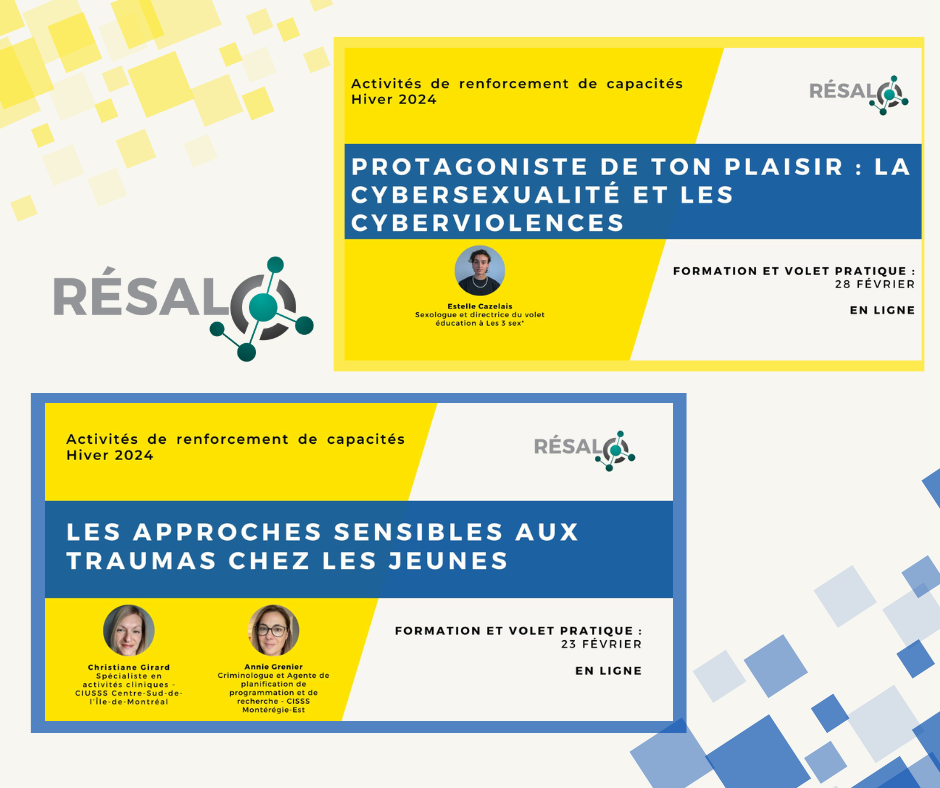As part the capacity-building activities of the Montreal Network Réseau d’échange et de soutien aux actions locales (RÉSAL), of which the ICPC is a member and coordinator, two series of thematic training sessions were held online in winter 2024. One session focused on trauma-sensitive approaches for young people, on 23 February, and the other on cybersexuality and cyber-violence, on 28 February.
Close to thirty people participated in the two activities, including front-line workers, social development officers, and representatives of community organizations, and institutions working with young people in the Greater Montreal area. The aim of the activities, which focused on violence committed and suffered by young people aged 12 to 25, was to equip participants to deal with the various problems encountered in their day-to-day work.
Trauma-sensitive approaches for young people, led by Annie Grenier, criminologist and programme planning and research officer at CISSS Montérégie-Est, and Christiane Girard, specialist in clinical activities with young offenders at CIUSSS Centre-Sud-de-l’Île-de-Montréal.
This first training session addressed the distinction between simple and complex trauma, highlighting the variety of traumatic events and their impact on different spheres of life, such as attachment, cognition, and emotion regulation. The training emphasized the importance of attentive listening and reception, rather than investigation, when working with young victims of trauma.
Through specialized resources and the practical example of the film ReMoved, participants were encouraged to adopt a multidisciplinary and adaptive approach. Initiatives such as the LOTUS programme and the adoption of this approach in schools and at the Institut national de psychiatrie légale Philippe-Pinel illustrated its concrete application, aimed at improving support and reducing the risk of recidivism among young people faced with trauma.
Protagonist of your pleasure: cybersexuality and cyber-violence, led by Estelle Cazelais, sexologist, and director of education at Les 3 sex*
This second training session explored the complexity of sexuality in the digital age, focusing on awareness, information, and education around these issues and highlighting their importance in young people’s sexuality.
Participants were led to adopt feminist intervention approaches that are intersectional, non-judgemental as well as intercultural, to better understand and support young people as they explore sexuality on the internet and social media. Examples of good practices, such as the use of platforms like Twitch to reach teenagers or the development of specific projects on sexting, illustrated how professionals can intervene effectively.
The training shed light on the challenges raised by cybersexuality, such as sextortion and early exposure to pornography, while emphasizing the need for comprehensive sex education that prepares young people to navigate a complex digital environment. By addressing the legislative aspects and social impacts of cybersexuality, the training also aimed to equip participants with the knowledge and tools to support young people in building healthy and respectful relationships in the digital age.
Thank you very much to our guest expertss and all those who participated for the success of this fifth cycle of training activities, which we had the pleasure of coordinating.



